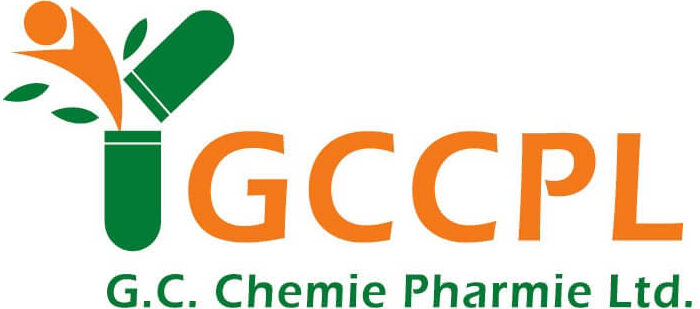Introduction
India has historically supplied pharmaceuticals to healthcare projects worldwide, and by 2025, experts expect it to play an even more significant role.
Due to increased regulatory pressure, expanded global demand, and the desire for faster production, companies are relying more heavily on collaborations with third party pharma manufacturers.
The concept offers an improved quality product, cost efficiency, and the utilization of advanced manufacturing facilities. The shift establishes an opportunity to focus on branding, marketing, and increasing market presence.
As reliable products for third party manufacturing become more prevalent, many companies are utilizing reputable third party pharma manufacturers India. They provide standardized and scalable solutions because they are ISO, GMP, and WHO compliant.
Moreover, API manufacturing India is growing rapidly which emphasizes the value of outsourcing.
Understanding Third Party Pharma Manufacturing
The practice of one business contracting with another to produce its pharmaceutical products is known as third party pharma manufacturing. While the brand owner concentrates on marketing and distribution, the third party pharma manufacturing company manages every aspect, from formulation to packaging.
Particularly among startups and mid-sized pharmaceutical companies that lack the necessary finances and infrastructure for full-scale manufacturing, this paradigm has become increasingly popular. Businesses can benefit from cutting-edge facilities, knowledge, and economies of scale by working with a seasoned third party pharma manufacturer without having to make a significant capital investment.
Working with a reputable third party manufacturer lowers your organization’s investment costs, time, and workload.
Even in sectors with their own manufacturing facilities, the idea of third party manufacture is becoming increasingly popular.
Key Factors to Consider While Choosing a Third Party Pharma Manufacturer
For long-term success, it is essential to collaborate with the appropriate third party pharmaceutical industry in India. Before selecting a choice, consider the following essential factors:
Certifications & Compliance (GMP, WHO, ISO, DCGI approvals):
The foundation of confidence in pharmaceutical manufacture is regulatory clearances. The leading third party pharmaceutical manufacturers India promise that their products meet global standards.
These certifications reassure customers and medical experts that the medications are safe, effective, and compliant with international standards. Your brand runs the danger of being rejected in both home and international markets if you don’t comply.
Quality Standards & API Manufacturing Capabilities in India:
In the Indian pharmaceutical industry, quality control is a must. Join forces with producers who possess sophisticated API manufacturing capabilities, stringent quality control procedures, and powerful in-house testing labs. Your products will be reliable, secure, and competitive worldwide if you can find, process, and manufacture premium Active Pharmaceutical Ingredients (APIs).
Product Range & Customization options:
An established pharma contract manufacturing partner offers a diverse array of third party manufacturing products, such as tablets, capsules, syrups, ointments, and nutraceuticals. It enables companies to easily enhance their products.
Depending on which trustworthy third party manufacturing company you collaborate with, you’ll likely have various options available in terms of re-formulating, re-dosing, re-packaging, and re-branding. As a result, you can fulfill specific customer demands and set yourself apart from the competition with a differentiated brand.
Infrastructure & Technology (modern plants, automation, AI in pharma):
To achieve minimal efficacy, safety, and consistency in products, third party pharma manufacturing will devote significant resources to research and development, automation, and modern technology and equipment. Their plants use some of the latest technologies to meet worldwide quality standards.
The facility must install modern automation systems and technologies to ensure that third party manufacturers produce all products efficiently, dose them precisely, and package them with excellence.
Supply Chain & Distribution Efficiency:
Evaluate the ability of the organization to manage the whole supply chain process. Identify potential weaknesses and evaluate risk-reduction strategies to mitigate disruptions. On-time delivery maintains your brand’s integrity and prevents stockouts in the market.
Pricing & Cost-effectiveness (balancing affordability with quality):
Determine the factors that will influence the costs of third party pharmaceutical manufacturing and then assess where to cut expenses vs. the assurance of quality. Strong negotiation skills will be critical to securing favorable pricing arrangements.
The best partner will achieve sensible pricing through price and uninterrupted quality. Making the most of production options, scalability discounts, and transparent pricing will all lead to future value.
Reputation & Client Portfolio (case studies, testimonials, export strength):
With years of experience and a strong history of filling large orders without delay, the leading third party pharma manufacturer is consistently reliable and consistent in terms of quality. Their established industry record means dependability and consistency in quality are theirs to own. Reputable companies having a solid track record and a global presence lower risks and lend credibility to your brand.
Latest Trends Shaping Third Party Pharma Manufacturing in 2025
The outlook for third party pharma manufacturers is positive. The demand for pharmaceutical contract manufacturing companies is expected to continue growing as companies leverage lean manufacturing practices and remain cautious about sourcing high-quality ingredients.
- Technology and Manufacturing: Industry leaders are introducing new technologies in manufacturing, such as automation, artificial intelligence, and blockchain, as emerging strategies. This breeds increased batch fidelity, which reduces overall manufacturing timelines with greater transparency.
- International Growth: Third party pharmaceutical contract manufacturing companies want to grow their businesses into other countries, especially in India. India is an excellent destination for exporting products, offering low development costs and high quality.
- Sustainability: Modern third party companies are considering sustainability in tandem with the global sustainability movement, such as reducing excessive products and waste, and utilizing green technologies.
- Digital Supply Chain Management: This enables third party pharma manufacturers in India to achieve this by reducing lead times through automated inventory tracking, real-time inventory tracking, and predictive demand planning, making it easier to do business with them.
Step-by-Step Guide to Partner with the Right Third Party Manufacturing
Finding the correct partner takes a considerable amount of thought, because there are many possibilities. Look for the following:
- Reputation: Ask about the reputation of the third-party pharmaceutical manufacturer. The larger the market share, the better.
- Certifications: Verify adherence to WHO, ISO, and GMP guidelines.
- Range of Products: The broader the range of manufacturing capabilities, the more likely it is to have greater customer loyalty.
- Infrastructure: A strong third-party pharmaceutical manufacturer will have great equipment, trusted laboratories, and competent processes.
- Customer Services: Look for manufacturers who can provide packaging service, documentation, and even marketing analysis.
Conclusion
Third party pharma manufacturing plays a critical role in India’s growing pharmaceutical industry. However, the process of identifying the proper third-party pharma manufacturer involves more than just a case of outsourcing manufacturing; it also consists of finding a partner you can rely on, who shares your brand values, ensures compliance, and produces an uninterrupted supply of quality products.
With the collective strength of API manufacturing in India, advanced technology, and a reputation for low-cost production, India is quickly becoming one of the leading global outsourcing destinations.
FAQs
What is third party pharma manufacturing?
Contract manufacturing, or third party pharmaceutical manufacturing, occurs when a pharmaceutical company selects an independent, specialized manufacturer to produce its products.
Why should pharma companies in India choose third-party manufacturers?
Indian Pharmaceutical companies utilize third-party manufacturers to reduce costs and capital expenditures, obtain access to specialized infrastructure and expertise, improve flexibility and scalability to meet market demands, and shorten the timeline for introducing new products.
What certifications should a third party pharma manufacturer have in 2025?
To assure product quality, safety, and compliance with regulations, third party pharmaceutical manufacturers will be required to obtain WHO-GMP, cGMP, and ISO certifications by 2025.
How is API manufacturing in India influencing the global pharmaceutical industry?
Indian API manufacturing supplies approximately 20% of worldwide APIs at a low cost, disrupting the global pharmaceutical industry by enabling affordable generics and global health interventions.
What are the latest trends in third-party pharma manufacturing?
The most recent trends in third party pharmaceutical manufacturing include the digital revolution (utilizing AI and automation), the rise of biopharma/ personalized medicine, and the increasing demand for flexibility and customization.
How do I evaluate the best third party pharma manufacturer in India?
You should evaluate the top third-party pharmaceutical manufacturer in India regarding their regulatory compliance/certifications, quality processes, manufacturing capabilities, and technology.
Is third party pharma manufacturing cost-effective for startups?
Third party pharmaceutical manufacturing is a highly cost-effective solution for startups, as it eliminates significant upfront investments in infrastructure, equipment, and personnel.
What is the difference between contract manufacturing and third-party pharma manufacturing?
While the pharmaceutical industry frequently equates “contract manufacturing” with “third-party pharma manufacturing”, contract manufacturing products are often developed with exclusivity, unlike third-party pharma manufacturing, which involves outsourcing production to a third party for relatively less exclusive products or products developed using shared manufacturing resources.





